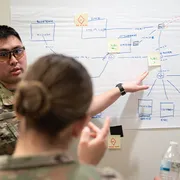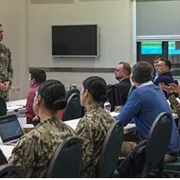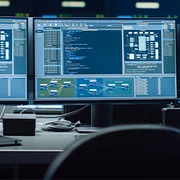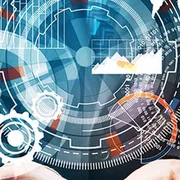Topics

Agile
With a focus on speeding the delivery of software capability to warfighters, the SEI has conducted research on Agile software approaches in the Department of Defense and other government settings since 2009.

Artificial Intelligence Engineering
The SEI develops AI applications for mission needs and leads the creation of a professional AI Engineering discipline to develop AI systems that are scalable, robust and secure, and human-centered.

Cloud Computing
The SEI studies cloud computing to help organizations develop and operate secure and cost-effective systems and deliver scalable capability to the network edge.

Continuous Deployment of Capability
Continuous deployment of capability enables the development, security, and delivery of software systems to streamline implementation of new capabilities and to provide continuous integration and continuous delivery (CI/CD) of resilient software deployment.
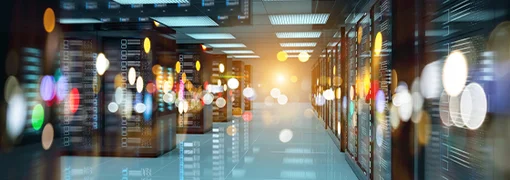
Cyber-Physical Systems
In cyber-physical systems (CPS), physical and software components are deeply intertwined. Our work in this area involves virtual integration and research and development to enable the rapid, scalable automatic verification of CPS systems.

Cybersecurity Center Development
The SEI helps security operations and cybersecurity centers develop, operationalize, and improve their incident management capabilities to prevent and mitigate cybersecurity threats.

Cybersecurity Engineering
The SEI’s research in cybersecurity engineering (CSE) builds knowledge, methods, patterns, and practices to help organizations acquire, develop, validate, and sustain software and systems so they can meet today’s cybersecurity challenges.

Cyber Workforce Development
The SEI has 20 years of experience delivering cutting-edge solutions through the development of innovative technologies and approaches that result in elite learning experiences and equip cybersecurity professionals with the skills to face emerging challenges.

Edge Computing
In traditional computing, processing is mainly performed on local servers and in the cloud. Edge computing pushes applications, data, and computing power to the edge of the Internet—to mobile devices, sensors, and end users. Moving compute to the edge has many benefits: faster response times, data privacy and security, and resiliency if the cloud becomes unavailable. Enabling operations at the edge is relevant in a growing number of systems ranging from battle operations to improve intelligence, surveillance, and reconnaissance to those in other domains, such as field research, field medicine, transportation, and environmental analysis.

Enterprise Risk and Resilience Management
The SEI conducts cybersecurity research and creates models, tools, and methods that empower organizations to improve enterprise risk management and resilience and build confidence in their cybersecurity posture.

Innovative Acquisition
CMU SEI is revolutionizing defense acquisition for software and systems—making it faster, leaner, and more innovative.

Insider Threat
The SEI conducts research, modeling, analysis, and outreach to develop data-driven, socio-technical solutions that help organizations reduce the impact and likelihood of insider threats.

Model-Based Systems Engineering
Model-based systems engineering (MBSE) is a formal methodology for supporting the requirements, design, analysis, verification, and validation for developing complex systems. Organizations that efficiently use MBSE will improve communication, productivity, and ultimately the quality of systems. Optimally leveraging MBSE requires a coordinated effort across an organization, sometimes making it difficult to adopt and apply.

Quantum Computing
The SEI is working to study how quantum computing can serve as the next paradigm for optimization in fields like software verification and validation.

Reverse Engineering for Malware Analysis
The SEI researches malware and reverse engineering to help analysts effectively and quickly remove malware from their organizations’ network.

Secure Development
Secure development refers to the set of tools, practices, and approaches created by the SEI to reduce vulnerabilities by eliminating coding errors.

Security Vulnerabilities
SEI researchers reduce cybersecurity risk by conducting and promoting coordinated vulnerability disclosure, researching and publishing vulnerability discovery tools and techniques, and improving vulnerability data and information systems.

Situational Awareness
Situational awareness establishes the methods and tools for organizations to successfully assess and monitor their assets and activities to protect against threats and attacks.

Software Architecture
The software architecture of a computing system is a depiction of the system that aids in understanding how the system will achieve key system qualities.
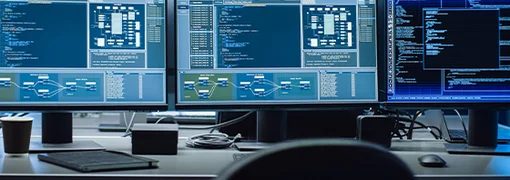
Software Engineering Research and Development
We conduct research, develop advanced technologies, and provide solutions throughout the entire lifecycle of software development and software-reliant systems, from acquisition through sustainment.
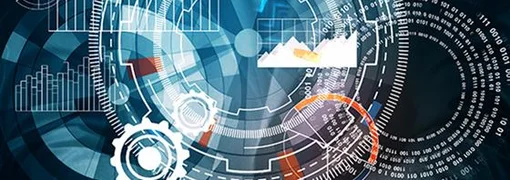
Technical Debt
Most software projects carry technical debt. We develop tools and techniques that identify it and provide a complete view of the debt that you need to manage.






